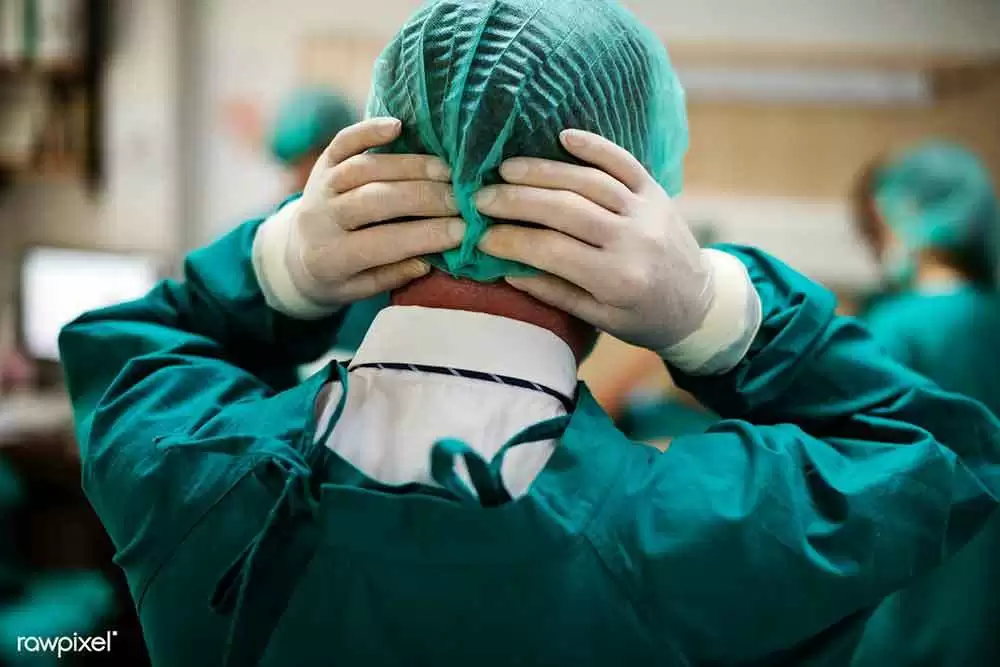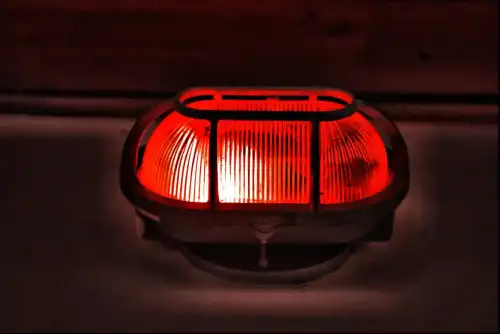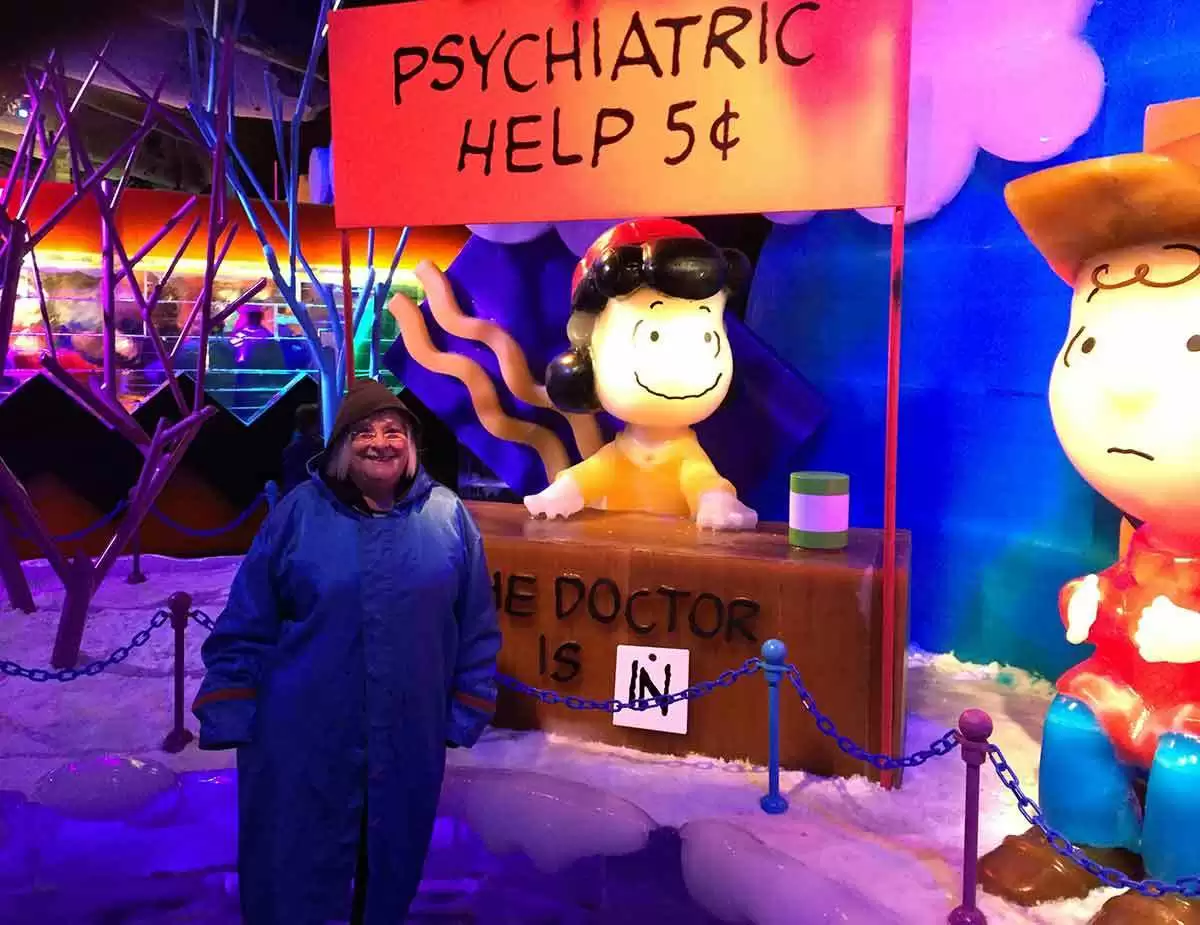
Celiac.com 03/30/2022 - I am the mother of two teenage children—both recently diagnosed with celiac disease. I manage an International Student Exchange program based in New Jersey. My hobbies include writing fiction and painting and I hold a black belt in Karate.
Do I have celiac disease? I believe so. As a matter of fact I made myself very sick trying to prove it. What can I say? I was desperate! I spent the past twenty-five years doing everything the doctors told me and I was getting sicker instead of better. All I concentrated on was eating healthy and doing anything that promised to settle my stomach. Nothing worked. Whenever I complained to a doctor they would run a few tests and tell me that I probably had irritable bowel syndrome (IBS). Their advice was to lose weight and watch what I eat—easy for them to say!
Celiac.com Sponsor (A12):
Since it wasn’t the in bed, out of work, desperately ill kind of sick at that point, I did my best to manage daily life. For the most part my family understood I had a “sensitive stomach” and learned to live with it—but I knew it was slowly getting worse and I was getting scared. Finally, I came to the point where I would just break down and pray to God, “I don’t care what it is, just give me an answer. Any answer!”
When I first explained to doctors that I seemed to always be in the bathroom with severe nausea, stomach cramps, gas, and bloating they would say: “Must be something you ate.” To which, I’d answer, “Everyday?” and they would just shrug their shoulders. It wasn’t like I was dying, losing vast amounts of weight, or exhibiting symptoms that would raise the red flag—but I was in pain and embarrassed. I don’t think the doctors realized what it took for me to come forward with my complaints. As before, I left the doctor’s office without any answers and went on with my life, managing it as best as I could.
One minute I could feel fine and the next I would be overcome with cramps. Some days I could barely manage to leave the house. It got so bad I would just not eat as I tried to “shut down” the digestive process.
Doctors kept saying IBS. Frankly, I didn’t think that was much of a diagnosis. I mean, I already knew my bowels were irritated! What causes it? What can I do about it?
I was told over and over again, “everyone gets it.” Watch what you eat, avoid junk food, alcohol, etc. Yeah right, I’d been trying that for years and it didn’t work. One day I’d eat something and be fine, the next day I’d eat the same thing and get sick. What did that tell me? I’d keep food diaries, take vitamins— even those made me nauseous— but I wasn’t feeling any better.
Finally, I resigned myself to carrying a pack of Imodium in my purse wherever I went. It was so bad that everything I ate caused pain. If I had to do any traveling I would just not eat the day before or the day of the trip. Everywhere I went I just resigned myself to not eating. Once I got home and felt safe I would be so hungry that I would stuff everything I could find into my mouth. Of course, that would make me as sick as a dog.
My biggest question was why could I eat something one day and be fine, then eat it a week later and be extremely sick? The medical community answered with “It’s IBS.” I know the real answer now. It’s because different brand names use different ingredients. One burger restaurant may add wheat, the other might not.
Though the years I developed other problems. Lethargy made me go back to the doctor for blood tests, and I was diagnosed with hypothyroid. The medication for this gave me more energy but did nothing for my IBS.
Scourge of my life. When I complained about having rough, blister-like breakouts on the back of my legs and arms I was told it was either eczema or “winter dry skin.” The recommendation was to use moisturizer and someone even told me to take vitamin E. None of this healed my skin but it did ease the breakouts a bit.
Since the IBS was an even bigger problem, I pushed these other stressful problems to the back of my mind and tried to find foods that I could eat. At that point everything made me sick. I again mentioned the problems with my stomach during one of my normal thyroid checkups, and the fact that even a plain old slice of bread made me nauseous. “How could that be?” I cried. “Bread was what you give to sick people!”
The doctor stopped and looked at me for a moment, then told me about his mother who had celiac disease. He told me I probably didn’t have it because of my weight—5 foot 6 inches and 160 pounds—because “people with celiac disease are very thin,” a belief that I later found out was incorrect. When I pressed him for more information he wrote down the name and told me to look it up on the Internet, but he still doubted that I had it.
At this point in my life I was desperate for an answer and I prayed to God everyday that he would send me a clue as to what was tormenting me. Could this be it? I logged onto my computer the first chance I got and started reading everything I could find on this disease. I started looking into how many things in our everyday life contain gluten—breads, cereals, pastas, pizzas, and cakes were the obvious sources, but I was soon to learn that gluten is also mixed into many other processed foods. I immediately started a quest to get gluten out of my diet—which was a lot harder than I ever imagined. As much as ninety percent of the soups, canned foods, and prepared foods on the market today contain gluten. It is also used in certain medicines, sauces, spices, cough drops, stamps, and even envelope glue! For a while it seemed like everything I looked at had gluten in it.
Another issue was cross-contamination. I needed to thoroughly clean those things which could be contaminated with gluten, including: toasters, cutting boards, pans, and plastic spatulas! It was incredibly depressing—yet the more research I did the easier it got.
People with celiac disease can live normal, healthy lives, and I found a lot of support on the Internet. There, people from all over the world join together to share hints, problems, and commiserate. It made the transition much easier.
I also went to my local health food store with a printout from a company that makes gluten-free foods, and they ordered some of them and now stock a wide variety of gluten-free products. I’m finding gluten-free pastas, breads, and even some cookies that are so good most people wouldn’t know that they were not made from wheat flour. There are also several good mail order bakeries that have good breads, bagels, and other products made from rice, tapioca or potato flour. I order online in quantity and freeze them.
It definitely gets easier as time goes on. Within a month on a gluten-free diet my “IBS” and stomach cramps were gone! The nausea took a bit longer to improve but each day it improved. When I returned to the doctor and shared that I believed that I had celiac disease he was doubtful. At my insistence he ordered the blood test. At that point I had been off of gluten for about six to eight weeks. The test was negative. By this time I had met other people with celiac disease through the Internet who informed me that the tests would not be accurate unless I had been eating gluten daily for at least six prior to the test. I verified this information online and found it to be correct.
My dilemma now was whether or not to go back on gluten for an accurate diagnosis. It was a hard decision. I have two daughters and I felt I needed to know since this can also be hereditary. My father suffered for years with gastrointestinal problems before dying at age 65 of colon cancer. I’m sure now that he had celiac disease.
With all of this hanging over my head I decided to go back on gluten to get a definitive answer. My first meal was a pizza! Yum!
The next day I was fine. So I continued to eat gluten. Within two days the cramps and diarrhea were back. By two weeks I was sick everyday and having trouble getting myself to work, but I didn’t give up. My husband thought I was crazy. He kept telling me that I already knew what was making me sick—so why was I doing this to myself? But I had already made the decision to find out if I really had celiac disease—so on I ate. On really bad days I took Imodium and sometimes didn’t eat until I was at home. The nausea was constant. Some days the cramping and pain were so bad that I just couldn’t eat at all. I don’t know if this hurt my test results or not but there were times when I just couldn’t bring myself to swallow any food at all. Eating caused the pain to worsen. This continued for six weeks!
On the day of my blood test I did not eat before I went to the lab at two in the afternoon. I was afraid that if I ate anything at all I’d get sick at the lab and that would be too embarrassing. Have you ever sat in a room full of people waiting for your turn—fighting nausea and just knowing that everyone in there was watching every time you got up to use the bathroom—five times in a row?! Let alone having to sit still long enough to get the blood drawn. The blood work all came back negative. At this point I dragged in my sixteen-year-old daughter for a blood test. The doctor thought that I was crazy. She didn’t fit the profile. I asked him to do it anyway to put my mind at ease—so he did. The blood work was positive. After that my nineteen-year-old daughter tested positive as well. Both of them opted out of the endoscopes, even though this is thought to be the gold standard for diagnosis. They went gluten-free and both are feeling much better on the diet.
Two weeks later I went for my endoscopy. I asked the gastroenterologist how many biopsies he was planning to take and he told me: “Enough, don’t worry.” But I did worry. What if it’s not enough? Celiac damage can be patchy and I desperately wanted an accurate diagnosis. The doctor called two days later and said the biopsy was fine.
So I am an undiagnosed celiac. I went gluten-free the day of my endoscopy and today I am feeling better than I have in my whole life! The “IBS” is gone, my skin is clearing and I never get nauseous. Today I feel healthy and I am living a much better life. Traveling still makes me nervous but it’s getting easier as I learn to trust my body once again.
Would my tests have been positive if I had been tested before going gluten-free? I don’t know and at this point I don’t care. I know what makes me sick and I avoid it. It’s as simple as that. I only wish I had understood that before going on the gluten challenge as it would have saved me a lot of pain.
My biggest problem now is when people say things like, “Oh, I couldn’t live without pasta!” Would they say to a diabetic: “I couldn’t live without sugar”? I hope not. To these people I just say: “You could if it made you sick.” I also thank God everyday for the answer I prayed for so often: celiac disease. It’s a different way of life that takes some getting used to, but it is quite do-able. Pizza never tasted as good as being healthy feels!
©A Personal Touch Publishing, LLC. This article originally appeared in the book A Personal Touch On...™ Celiac Disease.










Recommended Comments
Create an account or sign in to comment
You need to be a member in order to leave a comment
Create an account
Sign up for a new account in our community. It's easy!
Register a new accountSign in
Already have an account? Sign in here.
Sign In Now